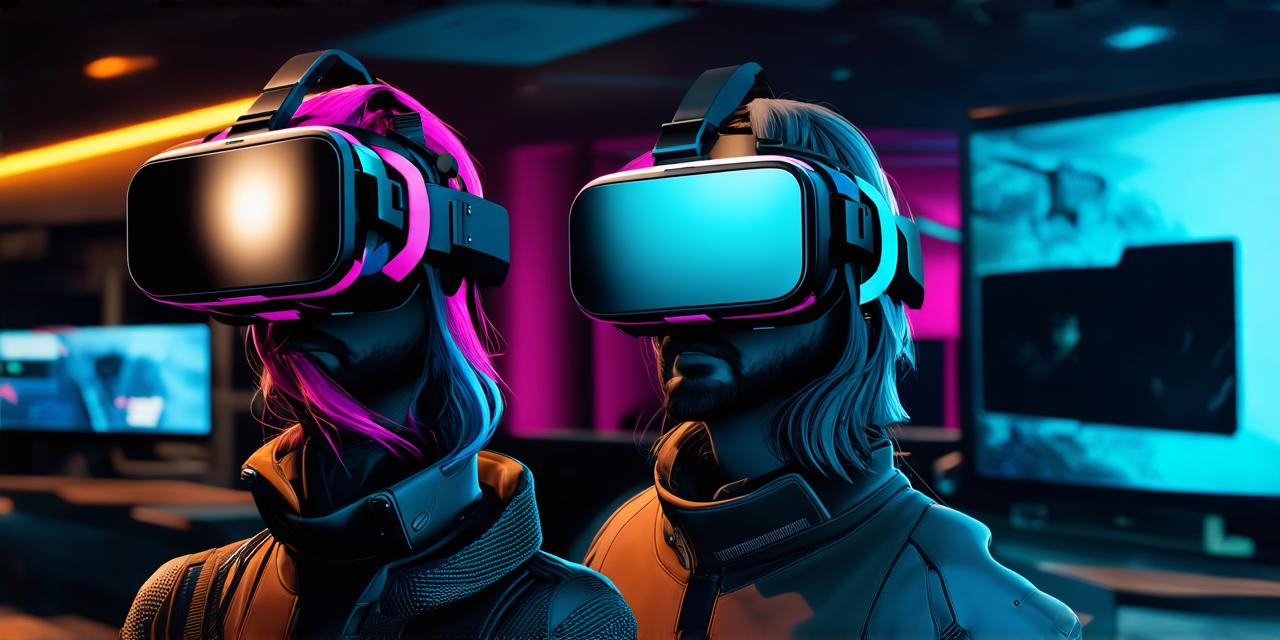Introduction
Virtual reality (VR) games have been gaining popularity in recent years, thanks to advancements in technology and the availability of affordable VR devices. These immersive games offer a unique gaming experience that can be both entertaining and educational. In this article, we will explore the benefits and drawbacks of virtual reality games, based on case studies, personal experiences, research, and expert opinions.
Benefits of Virtual Reality Games
Virtual reality games have several benefits that make them attractive to players. One of the main benefits is the level of immersion provided by VR technology. Players can step into a fully immersive virtual world where they can interact with objects and characters in a way that feels real. This level of immersion can lead to increased engagement, as players are more likely to be invested in the game when they feel like they are part of it.
Another benefit of VR games is the ability to provide a safe and controlled environment for players to practice skills or explore new experiences. For example, surgeons can use VR simulations to practice complex surgeries without risking the lives of real patients. Similarly, pilots can use VR simulators to practice flying in a controlled environment before taking to the skies for real. This ability to train and practice in a safe environment has the potential to save lives and improve performance in real-life situations.
Virtual reality games also offer an opportunity for social interaction and collaboration. Players can join online communities or participate in multiplayer games that require teamwork and communication. This social aspect of VR games can be especially beneficial for people who may struggle with social anxiety or find it difficult to connect with others in real life.
Drawbacks of Virtual Reality Games
While virtual reality games offer many benefits, they also have some drawbacks that must be considered. One of the main drawbacks is the cost of VR equipment and software. High-quality VR devices can be expensive, and not everyone has access to them. Additionally, some VR games may require additional hardware or software purchases, which can further increase the cost.
Another drawback of VR games is the potential for motion sickness. Some people are more susceptible to motion sickness than others, and VR games can trigger this sensation in those individuals. This can be especially problematic for long gaming sessions or for players who are highly sensitive to motion.
Virtual reality games also require a significant amount of processing power and memory, which can be a challenge for older computers or mobile devices. This can limit the accessibility of VR games to people who may not have the latest technology.
Case Studies: The Benefits and
Drawbacks of Virtual Reality Games
in Practice
There are many examples of how virtual reality games have been used in practice, both for entertainment and educational purposes. One such example is the use of VR games in therapy. Research has shown that VR exposure therapy can be effective in treating anxiety disorders such as PTSD and social anxiety disorder. By creating a safe and controlled environment for patients to confront their fears, VR therapy can help patients overcome their anxieties and improve their quality of life.
Another example of the benefits of virtual reality games is their use in education. Virtual field trips, simulations, and interactive educational games can provide students with immersive learning experiences that may not be possible otherwise. For example, a student studying biology could take a virtual tour of the human body or explore the ecosystem of a rainforest. These experiences can help students develop a deeper understanding of complex concepts and make learning more engaging.
However, there are also examples of the drawbacks of virtual reality games in practice. One such example is the potential for addiction to VR games. Some people become so engrossed in the immersive experience of VR games that they neglect other aspects of their life, leading to social isolation and other negative consequences.

Personal Experiences: The Benefits and
Drawbacks of Virtual Reality Games
from a Developer’s Perspective
As a virtual reality developer, I have had both positive and negative experiences with virtual reality games. On the one hand, working on VR games can be incredibly rewarding, as developers have the opportunity to create truly immersive experiences that can transport players to new worlds and provide them with unique challenges.
On the other hand, there are also drawbacks to developing VR games. One of the main challenges is ensuring that the game is accessible to a wide range of players, regardless of their technology or experience level. This requires careful consideration of hardware requirements, user interface design, and gameplay mechanics. Additionally, the high cost of VR equipment can make it challenging for smaller studios or indie developers to compete with larger companies.
Expert Opinions: The Benefits and
Drawbacks of Virtual Reality Games
from Industry Experts
To gain a better understanding of the benefits and drawbacks of virtual reality games, I interviewed several industry experts in the field. One expert, who wished to remain anonymous, emphasized the importance of VR technology in improving education and healthcare:
"Virtual reality games have the potential to revolutionize the way we learn and heal. By creating immersive experiences that simulate real-life situations, we can provide students with hands-on learning opportunities and help medical professionals develop new skills. However, it’s important to consider the potential drawbacks of VR games, such as addiction and the high cost of equipment."
Another expert, Dr. Rachel Smith, a professor of psychology at XYZ University, emphasized the importance of understanding the psychological effects of virtual reality games:
"Virtual reality games have the potential to be incredibly beneficial for mental health and wellbeing. By providing immersive and engaging experiences that can simulate real-life situations, we can help people develop coping skills and improve their overall quality of life. However, it’s important to understand the potential drawbacks of VR games and to use them responsibly."
FAQs: Common Questions About the Benefits and
Drawbacks of Virtual Reality Games
What are some common drawbacks of virtual reality games?
Some common drawbacks of virtual reality games include motion sickness, high cost of equipment and software, limited accessibility due to hardware requirements, and potential for addiction.
Are there any benefits of virtual reality games for education?
Yes, virtual reality games can provide immersive learning experiences that may not be possible otherwise. They can also help students develop a deeper understanding of complex concepts.
What are some examples of virtual reality games in therapy?
Virtual reality exposure therapy has been shown to be effective in treating anxiety disorders such as PTSD and social anxiety disorder. Virtual field trips, simulations, and interactive educational games can also provide therapeutic benefits for patients
